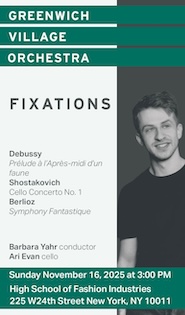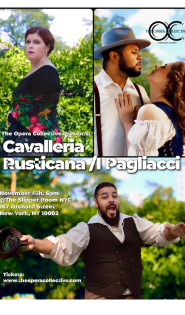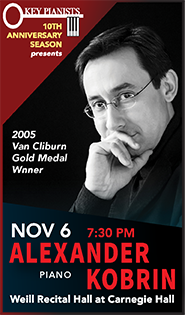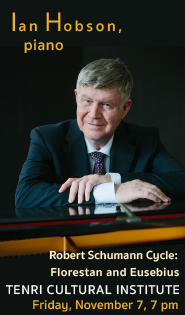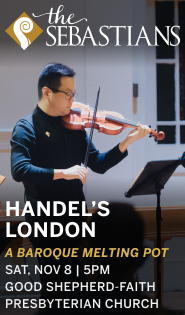Haddad work proves the highlight in ACO’s mixed Eastern-influenced program

Saad Haddad’s “Manarah” was performed by the American Composers Orchestra Friday night at Zankel Hall.
As astute listeners become more curious about non-Western music, composers with ties to the Middle East may find themselves suddenly—and gratifyingly—thrust into the spotlight.
“Eastern Wind” was the title of the American Composers Orchestra program Friday night at Zankel Hall, part of the ACO’s Orchestra Underground series. Conducted by George Manahan, the evening offered three world premieres, starting with Saad Haddad’s Manarah (2016), a tribute to the composer’s godfather. The title is Arabic for “beacon,” and here two trumpets—antiphonally placed on either side of the balcony and digitally processed—beckon to each other, and metaphorically light the way for the large ensemble.
A fanfare opens, seemingly tonal, but soon the harmonies are altered by microtones and glissandos, creating a much more complex landscape, all being subtly altered electronically in real time by the composer, who sat onstage at a laptop computer. Potent harmonics in the strings are laced with percussion: sandpaper blocks, triangle, tam-tam. Haddad’s intriguing textures made the night’s most arresting listening.
The other two premieres—each with virtues—offered more mixed pleasures. The Indian word “avartan” refers to a cycle in music, and according to composer Reena Esmail’s notes, Avartan, for orchestra and video (by Neeraj Jain) is about “first impressions.” The glistening, almost Debussyian textures ascend with prominent roles for bells, oboe, and piano—the latter plucked under the lid. But the well-intentioned video—beautifully filmed, with dozens of people of all ages, each gazing into the camera for about ten seconds—didn’t seem to add much to the score.
Mehmet Ali Sanlikol wrote Harabat/The Intoxicated with traditional Turkish forms in mind, using multiple ostinatos inspired by the chants of Sufi dervishes, and with texts by Edip Harabi. A shimmering opening chord—anchored by strings, piano, glockenspiel and cymbals—leads the way to passionate, mournful strains. Striking sequences for the ensemble include whispers, which flicker through the group like an additional, eloquent percussion voice. The composer was the soloist, both singing and playing the oud, a gorgeous, lute-like instrument with a history dating back thousands of years. Late in the piece, Sanlikol’s vocals became even more engrossing, with a startling resemblance to jazz scat-singing. Ultimately, his solo work trumped all, right through the quiet ending when the oud and whispers have the final word.
Written in 2011 and revised this year, Gity Razaz’s Metamorphosis of Narcissus is based on the classic tale of the man who falls in love with his reflection, ultimately turning into a flower. Razaz was fascinated by the story’s progression, which she illuminates with swirling motifs, first in the winds, then picked up by the strings, and later by the piano. One kept, intriguingly, hearing what sounded like electronic washes, gently augmenting the acoustic instruments, even though no electronics were listed in the printed program.
In this concert’s context, the final work, Matthias Pintscher’s songs from Solomon’s garden (2009), was a bit of an outlier—a sober few litres of modernism, and different from everything else on the program. The impressively strong soloist, baritone Steven LaBrie, had completely internalized the flowing vocal line.
But it didn’t help that the ensemble seemed to be struggling with the score. Pintscher’s brilliant colors—often created with unusual instrumental combinations—need complete confidence and pristine playing to make their impact. The texts, derived from the Hebrew Shir Hashirim (“The Song of Songs” in the Torah), are about love, but despite the heroic attempt, the results seemed arid, rather than idyllic.

